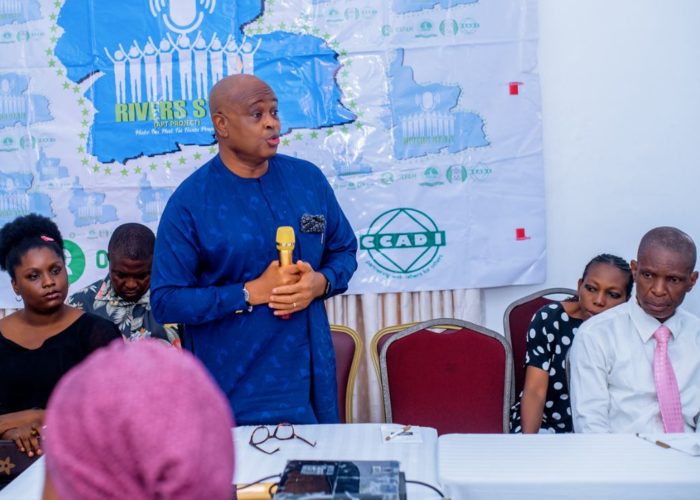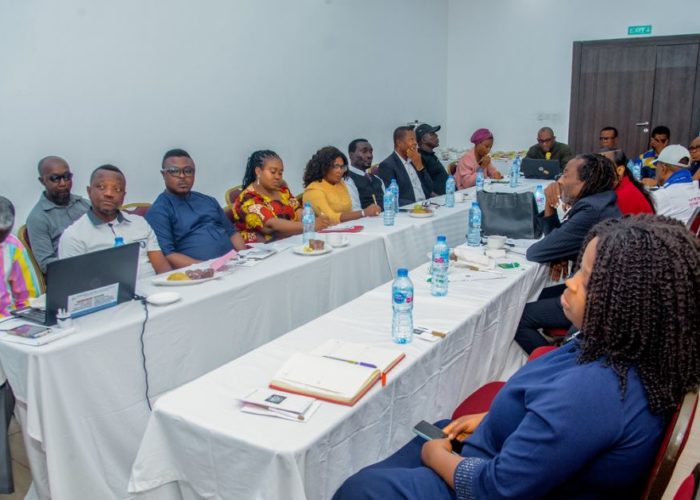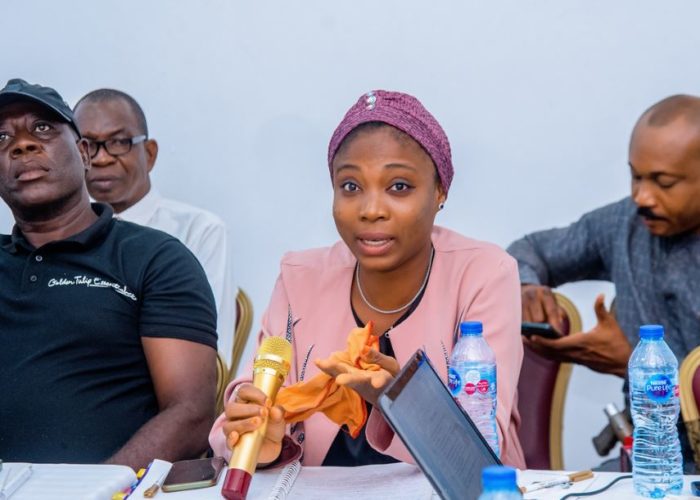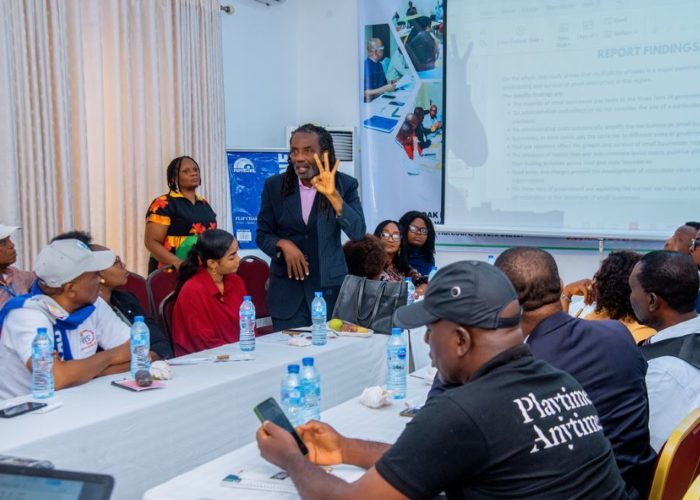In pursuit of the promotion of equitable and progressive taxation at the sub-national level in Nigeria, the Rivers State Tax Justice and Governance Platform, in collaboration with the Foundation for Partnership in the Niger Delta (PIND), organized a one-day Stakeholders Tax Policy Dialogue in Port Harcourt, Rivers State. The event aimed to foster collaboration and dialogue among key stakeholders, addressing issues related to multiple taxation and illegal levies.
The dialogue attracted participants from diverse sectors, including representatives from the Rivers State Government (Ministry of Commerce and Industry), the Organized Private Sector, the National Association of Nigeria Traders (NANTS), Small and Medium Enterprise Development Agency of Nigeria (SMEDAN), the Media, People Living with Disability Community, and Civil Society Organizations.
The event featured two presentations by Mr. Amaechi Kelechi Justin of the Tax Justice and Governance Platform and PIND’s Advocacy Manager, Mr. Chuks Ofulue. Both presentations focused on strengthening Tax Administration in Rivers State, highlighting the challenges of multiple taxation and illegal levies based on research conducted by PIND in three Niger Delta States—Abia, Delta, and Rivers.
An interactive session that followed the presentations, provided the platform for questions, answers, comments and a constructive engagement, leading to the formulation of specific thoughts and resolutions agreed upon by the participants.
Resolutions:
- Support for Presidential Committee Recommendations
Recommendation: The Rivers State Government and Local Government Councils should support and adopt the recommendations of the Presidential Committee on Fiscal Policy and Tax Reform. This includes simplifying the tax code, harmonizing and streamlining taxes and levies across government tiers to eliminate multiple taxation in Rivers State.
- Legislation for Fair and Progressive Tax Frameworks
Recommendation: The Rivers State government should enact legislation or formulate fair and progressive tax frameworks to stimulate economic growth and increase the revenue base.
- Digitization of Tax Administration
Recommendation: The Rivers State government should deepen the application of information technology in the tax administration value chain. This involves digitizing the taxes and levies system at the state and local government levels to optimize revenue potential.
- Establishment of Tax Justice League
Recommendation: A multi-stakeholder network, termed the Tax Justice League, should be established. This league would interface with both state and non-state actors involved in tax collection to safeguard the tax system in Rivers State.
- Involvement of Business Membership Associations
Recommendation: The collection of taxes and levies through Business Membership Associations in the informal sector should be considered to expand the tax net and reduce multiple taxation, ensuring compliance with human rights and preserving the civic space.
- Scaling Up the Dialogue
Recommendation: The tax policy dialogue should be scaled up to a regional event to facilitate cross-learning and knowledge exchange within the Niger Delta region.
- Tax Education and Sensitization
Recommendation: There is a dire need for a robust tax education and sensitization program by all stakeholders to improve voluntary compliance, recognized as more effective in driving tax receipts.
- CSO Advocacy for Strengthening Tax Administration
Recommendation: Civil Society Organizations should engage in intensive advocacy to relevant stakeholders on strengthening tax administration in Rivers State. This includes reviewing, repealing, amending, and effectively implementing sections of the Rivers State tax laws to encourage compliance and boost revenue.
- Institutionalizing Stakeholder Engagement
Recommendation: The Rivers State Government should institutionalize periodic stakeholder engagement around tax administration and related matters to create a more business-friendly environment.
- Development of Tax Expenditure Framework
Recommendation: The Rivers State Government should urgently develop a tax expenditure and ease-of-doing business framework to facilitate economic growth and sustainable development.
Conclusion
The Stakeholders Tax Policy Dialogue in Rivers State concluded with a consensus on these recommendations, signifying the collective commitment to address the challenges in the current taxation system. These resolutions provide a roadmap for future collaborative efforts to ensure fair, progressive, and effective tax administration in Rivers State.








